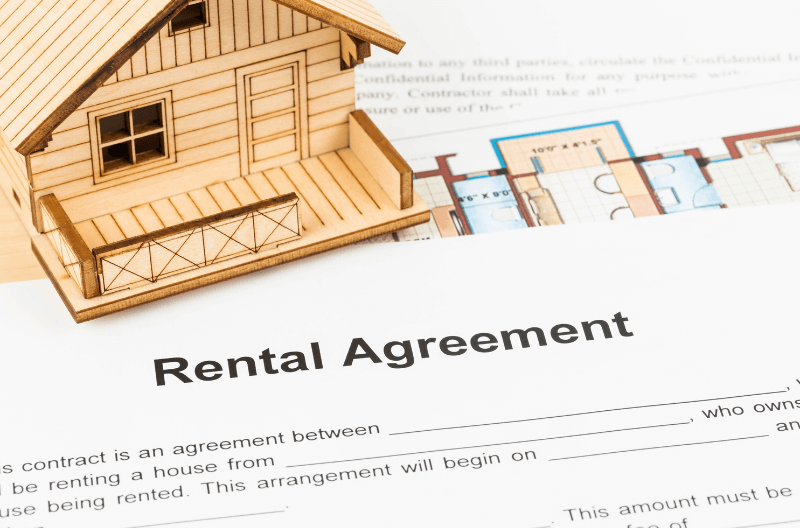
If you are a landlord, knowing your rights is crucial to avoiding lawsuits, issues with tenants and money spent fighting legal battles you don’t have to. Staying ahead of the game is critical to preventing mishaps or miscommunications leading to thousands of dollars in the long run.
So, what are your landlord rights? If you have recently purchased a condo, apartment, or home, know your legal rights and responsibilities before getting any tenants or renters.
Landlords and tenants create agreements and contracts that describe the rights and obligations that every property owner and landlord has with the rental property. Tenants and landlords must understand the other person’s rights before doing business.
Let’s look at the landlord’s rights if a tenant damages the property and the legal action to take. Or, if you are tired of having tenants, learn how to sell a house fast in Minnesota!
Landlord Rights if Tenant Damages Property
The last thing you want is to see an apartment in your building and notice it has been completely trashed. Or, in other cases, a tenant may have accidentally broken an item on your property. Although some fixes are more severe than others, you still need to know your legal rights regarding tenant liability after damaging your property.
Did an angry tenant damage your property?
There are a few steps to take if a tenant damages the property that can help safeguard yourself and your private property moving forward:
- Analyze the property damage — identify the situation and figure out who damaged your property. You must find the culprit and determine the best course of action. If it is the tenant, make sure you have proof. Then, deal with the person calmly and calmly to avoid escalating the situation.
- Documenting the damage — Taking photos, writing down the damaged item, or recording a video is an excellent way to ensure you have evidence of the damage. A video tour of the damage can help you record the issue and remain objective.
- Estimate the repair costs — The tenant may have just knocked some wallpaper off the wall; this is an easy fix. In other cases, the tenant might have damaged property, leading to an expensive repair bill. Ensure you receive a quote on the damage so you can provide an estimate and get your money back soon.
- Talk with the tenant — This might be an unpleasant conversation, but landlords must discuss the issue with the tenant to see what happened and how to pay back the repair price. Discuss the severity of the case and how you plan to fix the problem. Being fair and honest with the tenant is the best way to avoid legal action. Occasionally, the tenant might not agree, and you will have to go to court. Tenant screening before the move-in process can usually help mediate occupancy concerns.
- Remove money from the security deposit — The last step of your landlord’s rights in a property destruction case is deducting the money from their prepaid security deposit. When the tenant moves into the property, they will have paid a security deposit that usually totals at least the first and last month’s rent. You can deduct the cost of the repairs from this security deposit after providing an itemized list of damages, repair costs, and evidence/documentation.
Suppose the tenant refuses to pay money for the damages. In that case, the landlord can take legal action to repair the damaged property.
We recommend contacting filing a police report or an insurance policy claim to deal with the issue. Getting in contact with the police is necessary if the new tenant steals items. On the other hand, filing an insurance claim is a smart move for landlords who know their annual premiums will not increase.
Lastly, landlords can sue a tenant for damages in small claims court if the tenant will not pay for the repairs. In this case, the judge might rule against the tenant to provide the landlord with the necessary cost of repairs, which is paid through a collections agency.
Use Cash home buyers in Minneapolis to get the best deal when selling your property.
Need to Sell Your House Fast?
We make selling your house a simple affair – even if it’s been damaged by tenants.
Just fill out the form below or give us a call at: (612) 260-5577 to get your free, no-obligation cash offer!
Tenants’ Rights if They Damage Property
On the other side, it is helpful to understand the tenant’s rights if they damage private property.
Tenants have responsibilities when it comes to renting a property, such as the following:
- Repairing damage — Tenants must repair the damage they cause to property and maintain their property in ‘good’ condition. Even if a tenant has a guest over and the guest is the culprit, the tenant is still responsible for repairing the damage. Any damage beyond reasonable wear and tear requires repair during their tenancy. Usually, the tenant will pay for the repair out of pocket. Still, they can also discuss taking money out of their security deposit.
- Return the rental to the original condition — Another tenant-right is returning the property to the actual state during the lease termination.
- Landlords cannot enter without reason — Even if you have damaged your property, the landlord cannot enter without a day’s notice. They must give you 24 hours before they can enter your property and receive a response.
- Unlawful eviction — Despite any damage to the property, tenants must still go through the complete eviction process. Landlords cannot evict a tenant quicker than 30 days unless there are exceptional circumstances.
Rental Laws Between Landlords and Tenants
There are specific rental laws between landlords and tenants which is helpful to know if you are on either side of the argument. There are federal and state laws to keep in mind regarding legal obligations regarding property.
Federal laws:
- Fair Housing Act — The Fair Housing Act prohibits landlords from discriminating against tenants due to race, origin, color, religion, familial status, sex, or disability.
- Fair Credit Reporting Act — This controls how a landlord can use a tenant’s credit score and history for screening.
State laws:
There are state laws regarding how a landlord and tenant can interact and how information is shared. These laws typically refer to the rights and obligations of the landlords/tenants, terms and conditions, lease termination stipulations, and eviction details.
Other laws to keep in mind include the following:
- Lease document — The legal lease document details the leasing period, rental rates, and tenant names.
- Disclosures — States have requirements regarding disclosures that must be included in the lease, such as notice of local sex offenders, paint disclosure, contamination, or health hazards.
- Safe environment — Landlords must ensure the rental unit is habitable and safe.
- Repairs — Tenants must report any required repairs, while the landlord must make a repair that affects a tenant’s health.
- Security deposits — A landlord must give the tenant an itemized list of deductions or reasons why the money was not returned. The security deposit is not the same as the rent payments.
- Right to privacy — The tenant has privacy rights that prevent their home from being disturbed; the landlord cannot enter the unit without 24-48 hours of notice and with a valid reason.
- Abandoned property — If a tenant leaves the property, the landlord must consider this vacant property as ‘abandoned.’ The landlord must notify the past tenant of storage costs, how to claim the vacant property, and a reasonable time frame for claiming the items.
- Criminal activity — There are laws regarding criminal activity in a shared housing unit. Suppose the landlord is aware of illegal activity in a housing unit. In that case, they must legally report it to the local authorities.
- Safety features — Landlords must provide tenant health and safety measures, such as carbon monoxide detectors, smoke detectors, peepholes, windows, and fire extinguishers.
- Evictions — The last tenant and landlord law is about evictions. A landlord can evict a tenant for not paying rent, vacating the premises after a lease termination, or violating their rental agreement.
Not well-versed in the federal and state laws? We buy houses Plymouth can help you with!

Who Pays for Damages Caused By Tenants?
So, who has to pay if a tenant damages a rental property? This is key in understanding tenant-landlord law and who is responsible for necessary repairs to make the space habitable and safe.
Usually, tenants do not have to pay for everyday wear and tear or deterioration of the living space over time, such as worn-out materials or paint chips. However, if the tenant has directly caused the problem or damage prematurely, this would fall on the tenant’s shoulders, who has to cover the costs.
Renters must be aware that landlords can sue them for damages to their property. In this case, they may find that a justice court can help resolve the issue.
Thinking of selling your rental property? We can help you! Leave the stress behind.
Conclusion
Understanding your rights as a landlord is crucial in avoiding any issues regarding property management, real estate concerns, lease term disputes, or tenants who won’t pay rent.
We recommend using a property management company that can stay on top of the specific property code, landlord-tenant laws, and security deposit particulars. Learning the steps to selling a house with tenants is crucial to getting the most bang for your buck.
